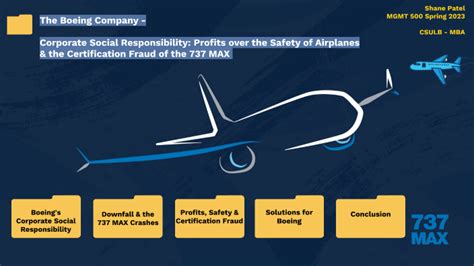The ongoing legal battles and ethical dilemmas surrounding Boeing have sparked a wave of debate about corporate accountability and justice. The calls for the Justice Department to levee criminal charges against Boeing represent not just a reaction to the recent allegations but also a broader indictment of corporate power and regulatory failure. This issue traces its roots back to the catastrophic crashes of the 737 MAX jets in 2018 and 2019, which claimed hundreds of lives and exposed glaring lapses in safety and compliance. The tragedy has illuminated grave systemic issues within Boeing and how it has been allowed to operate with disregard for public safety, driven by profit motives. The notion that the corporation believed a $2.5 billion settlement was enough to absolve it from its obligations to safety and compliance highlights the distorted values prevalent in the business world today.
Many critics argue that financial settlements, like the one Boeing agreed to in 2021, effectively act as ‘corporate bribes,’ insulating senior executives from real accountability. The comment by lukan underscores this emotional sentiment well, emphasizing that such actions might lead to charges of manslaughter if the criminal intent or gross negligence is proven. The broader community’s outrage centers on the principle that monetary penalties alone cannot address the loss of lives and the underlying safety violations. Instead, there is a growing consensus that real change requires holding individuals—particularly those in leadership positions—accountable through criminal prosecution. This would not only serve justice to the victims’ families but also send a strong signal to the entire industry about the importance of maintaining stringent safety standards.
The debate expands into the ethical domain when considering deferred prosecution agreements and the perceived leniency they present. Commenter Arnt points out the commonality of such settlements, where typically hefty donations or financial penalties are floated to sidestep prolonged legal battles. However, this approach is increasingly being seen as insufficient when dealing with large-scale violations that result in human casualties. The recurring theme of Boeing’s transgressions, such as using counterfeit parts or hiding defective components from regulators, suggests a pattern of negligence and deceit that cannot be fixed with financial penalties alone. There is an urgent need for rethinking the punitive measures and ensuring stricter regulatory oversight to prevent such tragedies.
Another crucial aspect brought to the forefront is the structural and cultural issue within Boeing. The calls for criminal charges against individual executives reflect a deep-seated anger towards the corporate ethos that seemingly prioritizes profit over human life. The systemic safety issues like ignoring the warnings from test pilots about flaws in the MCAS system are a grim reminder of how internal pressures to meet market demands can lead to catastrophic decisions. The poignant observations made by commenters about how systemic negligence resulted in the deaths of hundreds of people underscore the urgent need for accountability and systemic change within the company. Moreover, allegations against Boeing for retaliating against whistleblowers reveal a toxic environment where safety concerns are often suppressed rather than addressed.
The legal and ethical turmoil facing Boeing also raises questions about the role of regulatory bodies like the FAA. It’s crucial to examine the regulatory failures that allowed Boeing to self-certify many of the systems on the 737 MAX, a practice that has been criticized for creating conflicts of interest. The broader implication here is the need for stronger regulatory frameworks and independent oversight that cannot be compromised by corporate influence. Future aviation safety depends not just on the punitive measures imposed post-facto but on creating an environment where safety is inherently prioritized. This includes more rigorous checks, transparent reporting mechanisms, and a culture that supports rather than punishes whistleblowers.


Leave a Reply